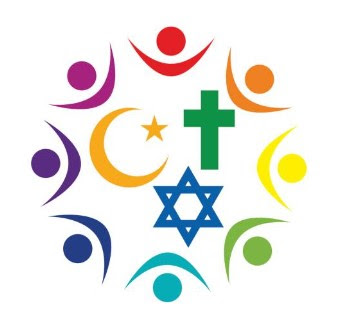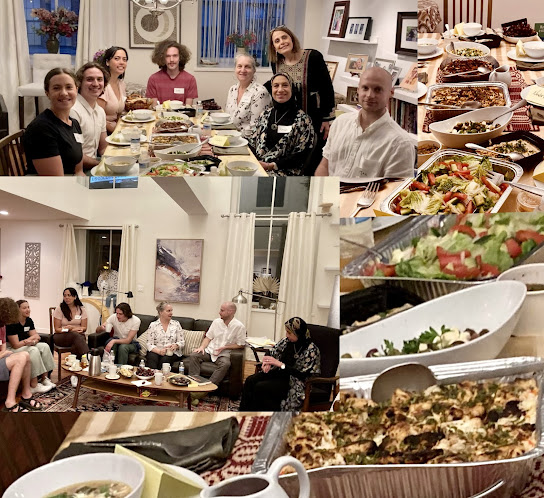IP Staff Reflections: "A Year of Practice for a Life of Practice: My Year as a Quaker Volunteer" | by Liz Royer
For the last eleven months, I have been privileged to serve at Interfaith Philadelphia as a Quaker Voluntary Service fellow. QVS is “a one-year experiment in intentional living” where young adults across the country choose to volunteer full-time at a nonprofit organization and join six or seven other fellows in intentional community. For me, what set QVS apart from other service programs was their promise that the experience would not be a “year off” from regular life, but instead a year of preparation for a whole lifetime of service.
I remember hearing once, back when I first started to become interested in Quakerism, that “there are no Quaker beliefs, only Quaker practices”. The Religious Society of Friends is a non-creedal religion, meaning that it has no official statement of faith. This means that Quakers hold a wide diversity of beliefs about the Divine, the world around us, and how one should live in it--in fact, some Friends would almost certainly disagree with the belief that there are no Quaker beliefs. What many (though not all) Quakers hold in common are certain practices; such as meeting for worship, using clerks instead of clergy, and making decisions by consensus.
Looking back on my year with QVS, I’m now seeing it less as a year of preparation for a life of service, as a year of practice--for a life of practice. This has been a year of learning how to cultivate habits that may seem small on their own, but that over time, gather a powerful momentum. Practice meeting for worship and listening to the messages shared. Practice cooking meals for a dozen people. Practice leaning into healthy conflict. Practice having fun and laughing together.
In the beginning, the ‘feeling’ of community in our house would sometimes wax and wane. But over the course of the year, by returning to these practices, my housemates and I learned how to live together. We learned that living in community doesn’t mean being perfect all the time--we could never achieve that goal even if we wanted to. We learned that community means continuing to show up even in our imperfection, and trusting that we’ll be welcomed back again. And then gently asked to please do the dishes.
In my opinion, engaging in interfaith work is not really all that different from living in intentional community. Interfaith engagement invites us not to be perfect, but rather to cultivate the skills that, when accumulated, can lead to deeper understanding. Over time, certain ones emerge as central: practices like asking curious questions, leaning into new experience, and honoring everyone’s uniqueness. Perhaps most powerful of all, the practice of coming back to the table, whenever we can, and trusting that even greater benefits will reveal themselves over time.
There is a reason why most people choose not to live in communes--it’s really hard. And even the most carefully constructed communities do not always live up to their ideals. But most of us do seek out community in one way or another: through congregations, friends, family, workplaces, neighbors, or on the internet. This is where practice comes in.
If I had to distill this year into one learning, it would be the understanding that my faith--in community, in other people, in myself, in the effectiveness of the work--will sometimes wax and wane. But if I continue to show up and practice, even on days when I’m not certain what the outcome will be, I can help create the communities I want to live in and the person I want to become.




Comments
Post a Comment